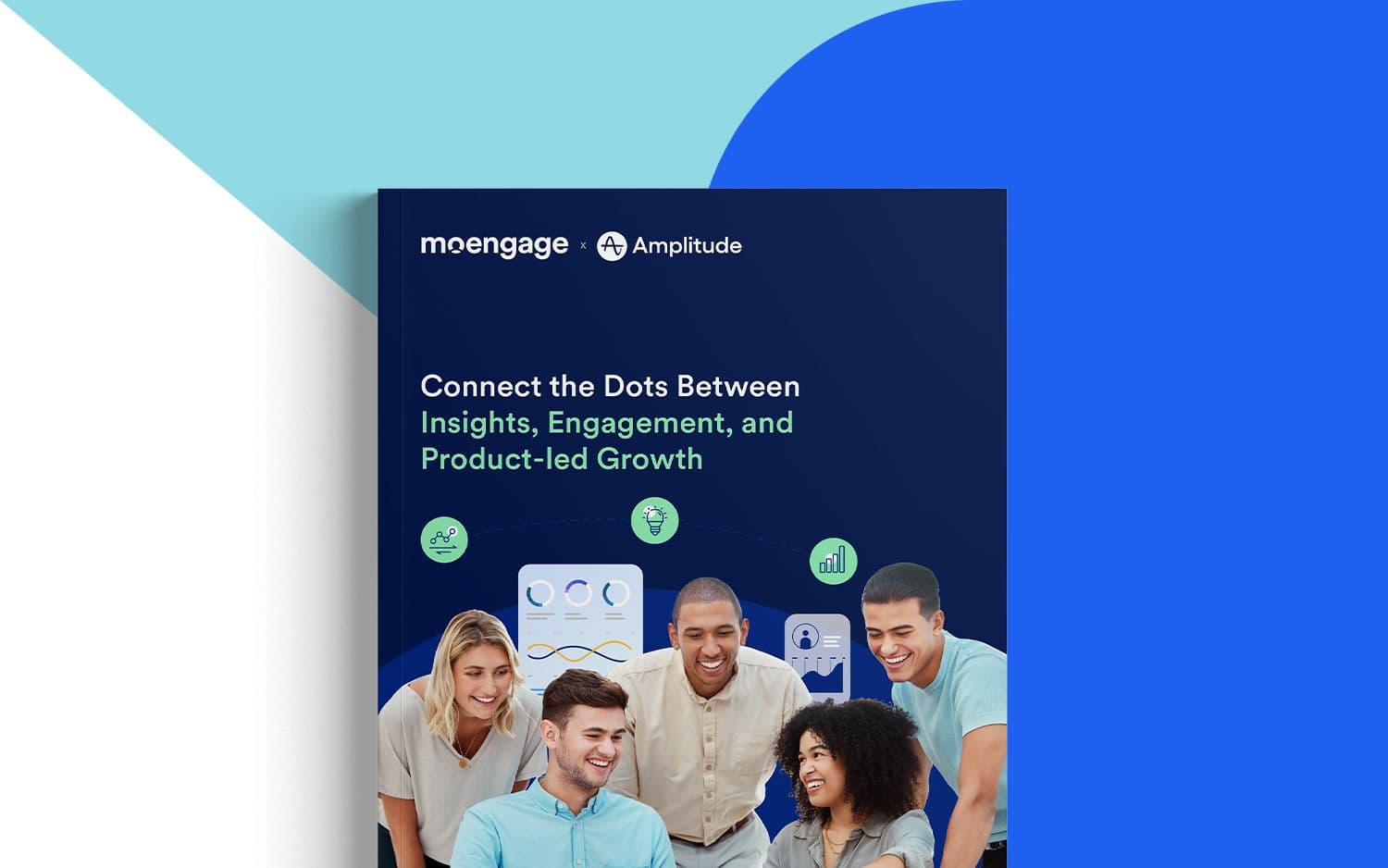Increase Engagement and Product-led Growth with an Insights-led Culture
Develop an insights-led culture to create high customer engagement and drive product-led growth.
Note: This blog post is an excerpt from Connect the Dots Between Insights, Engagement, and Product-led Growth, created in partnership with MoEngage. Download the full ebook to discover the process of transforming your organization’s data environment and culture through four steps.
The pandemic, recession, and never-ending competition in the market mean that without a customer-centric focus, the long-term survival of brands is less likely.
These macroeconomic factors have altered and continue to alter the entire market landscape, presenting customers with countless product and service alternatives to choose from.
Hence, the need to understand your customers is more important now than ever. That’s where data comes in, helping you take a leap closer to your customers.
When we talk about data, we are talking about the entire organization, where an insights-led culture is inherently rooted in different teams, such as product, customer success, sales, growth, and marketing.
This is a critical shift in the entire business paradigm, and organizations need to plan for change.
Why most efforts to derive insights fail
Data is the foundation of any organization that wants to build winning products. Even so, there are very few brands that are truly insights-led.
Here are four main reasons why brands often fail to derive insights:
1. Limited focus on insights
Many teams think the goal of data initiatives is solely to track metrics. Due to this, they only consider transactional metrics such as the number of customers who signed up on the app or the number of completed transactions. Instead, the goal should be to analyze those metrics and determine where your customers are coming from, why there are such few sign-ups, etc.
2. Neglecting the “Business user”
According to a recent study by NewVantage Partners, most brands still face significant headwinds in the process of becoming insights-led, with only 24.4% successfully forging a data culture within their organizations. The reason for this is most data leaders fail to evaluate multiple use cases or recognize the needs of different data consumers within the organization. Due to this, many brands are still far behind on their insights-led journey.
3. Considering data as a one-time project
When data is viewed as a one-and-done project instead of an ongoing initiative, there is no room for iteration. Due to this, when the market landscape changes and your customers and business needs evolve, you won’t be able to respond with agility.
4. Having scattered or inconsistent data
According to The State of Insights-led Engagement Report 2022 – North America Edition, 40.4% of American marketers manage customer engagement operations by enabling teams to operate independently. Working in silos, especially without proper documentation, results in scattered data, with no focus on insights. This often leads to disjointed customer experiences.
Read the full ebook to understand how to establish a strong foundation with insights.
Turning insights into a team sport
Insights driven by data help you understand your customers’ needs and preferences, allowing you to tailor your offerings and messaging accordingly. However, building data lakes and implementing high-priced infrastructure to jump-start insights-led projects is of no use unless cross-functional teams are empowered to use this data.
Three reasons why data democratization is critical:
- Data invisibility: With changes in consumer behavior and increased competition, it is necessary to adopt strategies in accordance with real-time insights on the actual usage of the product by customers.
- Data explosion: As the product expands and diversifies, the amount of data that needs to be analyzed increases significantly.
- Data talent: If a company depends on only the data team to acquire and analyze data, it will eventually experience a shortage of human resources.
You can dig deeper into how to democratize data for your teams in Connect the Dots Between Insights, Engagement, and Product-led Growth.
Learn more
Through four steps, the ebook covers why and how organizations can develop and instill a well-articulated data strategy in their culture, resulting in:
- Alignment of teams and unification of the process for deriving insights
- Streamlining of engagement loops and prevention of disjointed customer experiences
- Improvement of products based on various benchmarks that enable brands to truly adopt a product-led growth (PLG) approach
- Implementation of the right foundational technologies to enable insights-led objectives

Dan Stephen
Former Director of Partnerships, Amplitude
Dan works with the world's leading consulting and agency firms to help them bring product analytics capabilities to their clients digital transformations. Over the years Dan has built deep product and growth expertise in a range of industries including: Consumer Tech, Entertainment, eCommerce and Fintech. Dan was formerly Amplitude's resident Aussie and Trivia Host.
More from Dan




